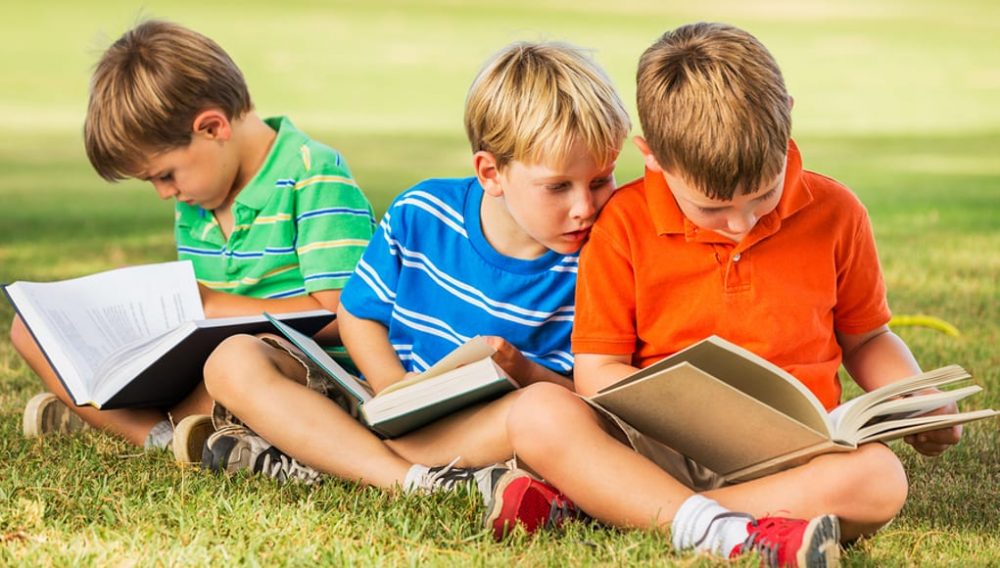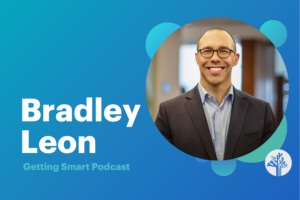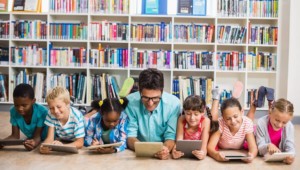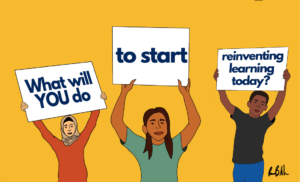Literacy Concerns in the New Mutuality

In this time of crisis, principals and other school staff have led with solidarity to make sure basic needs are met and are now pivoting to new strategies for protecting instructional time. Emergency response plans to team up and deploy devices and even wifi access points emerged and are now ubiquitous. And yet, for all the ways these school leaders have mobilized, their efficacy is yet to be determined. But be heartened by this — we just witnessed an impressive feat with how educators courageously rushed into the fire to address the critical needs of their families. Their example let alone their capacity is what’s most encouraging as we contend with the other issues surfacing as a result of the seismic shift mandated by the outbreak.
The pandemic is illuminating other gaps or deficiencies in our public education system, namely as it applies to the literacy gap. That is especially worrisome for systematically-marginalized families, or for students with specific learning disabilities that make the process of reading basic instructions a barrier to their education. If that solidarity, this new mutuality, can continue after we gain some measure of control after the COVID-19 outbreak, we will be able to apply it to literacy in a way that will begin to reverse the widening gaps felt by some students, families, and communities.
Schools indefinitely closed across the country have left students in a bit of a relational lurch, to say the least. The technology came first (Zoom, Skype, Hangouts, Teams) and now that we’re acclimating to that, it’s predictable that we continue to seek connection and do so in meaningful ways.
Firstly, some clarity around two values:
- Literacy is a continually evolving, complex, and essential skill and it’s an ethical obligation to prioritize it for people universally.
- Solidarity isn’t situational. Once the pandemic is mitigated, we continue to choose to move forward together.
If we’re in accord, the good news is we’re likely already doing some of the things we need to be doing. Dublin City Schools in Georgia is committed to “creating a city of readers” and their teachers are posting read-alouds every evening for families to use with their children. A Provo, UT school district launched an online literacy hub. Individual teachers all over are uploading their read-alouds for units they had already written, and even astronauts are reading from space.
These efforts are commendable for both equity and connection (even for astronauts!). And in spite of the gravity of the present (or lack of actual gravity), it’s great to imagine that we’ll exit this unexpected season with a renewed sense of value in our relationships with our students’ and their families’ needs and a body of work that is still relevant once school resumes.
If your school or district isn’t doing something similar, there are plenty of new resources online for your students or children:
- Audible Stories is free.
- Amazon Kindle Unlimited is now free for two months.
- The Internet Archive launched the National Emergency Library.
And if reliable internet isn’t a given for your families, let’s also shine a light on libraries and other organizations giving away hard copies of books. Perhaps you can find a local source similar to these examples:
- The Barbara Bush Foundation just donated 100,000 books to Houston ISD students.
- Alabama’s South Baldwin Literacy Center has stood up a drive-through giving away books to students.
So, teachers…be sure to keep checking on your parents — that they have books in their homes or access to material in some manner. Parents, the gains of reading to your children are backed up in research and we all need good stories more than ever. And regardless of how we’ll reflect upon the results of our continued efforts to prevent the literacy gap from getting wider, we can all benefit during this pause to share the stories that are piquing our interest.
A final word: breaks from screen time are not only good for students. If you’ll excuse us, we’re going to find a favorite chair, grab a book, and invest in ourselves as well!
Please share your own ideas here and tell us what stories are captivating your attention.
For more, see:
- Literacy Design Collaborative Boosts Student and Teacher Learning
- A Lean Approach to Literacy Technology
- Four Ways Adults Can Support Child Literacy
Stay in-the-know with innovations in learning by signing up for the weekly Smart Update.







Valerie Chernek
Reading grade level text and enjoying the act of reading independently is especially trying for students with reading differences, like dyslexia. Teachers and parents working with these students in and out of school settings, might consider Learning Ally audiobooks and reading accommodation. This beneficial resource is free during Covid19. https://learningally.org/Solutions-for-School/Educator-Blog/at-risk-students-given-free-access-to-essential-education-solutions